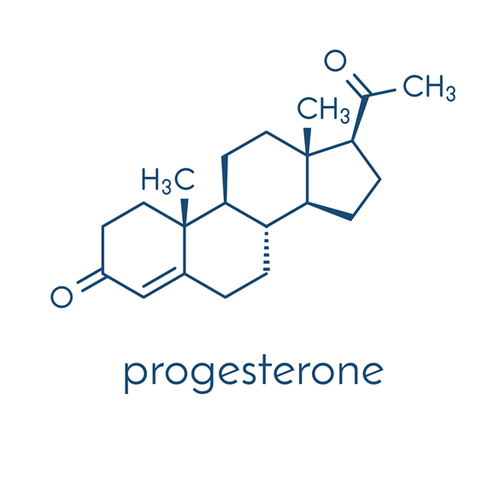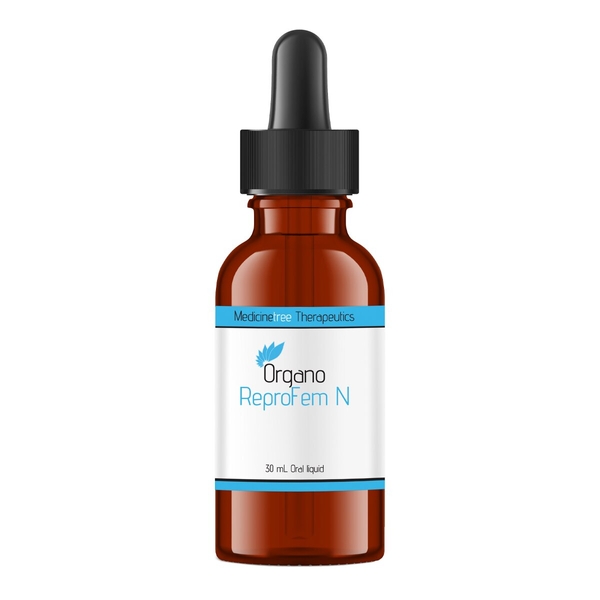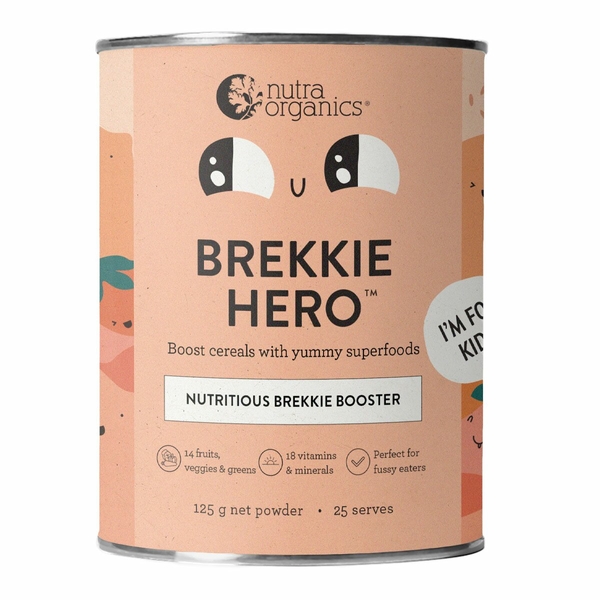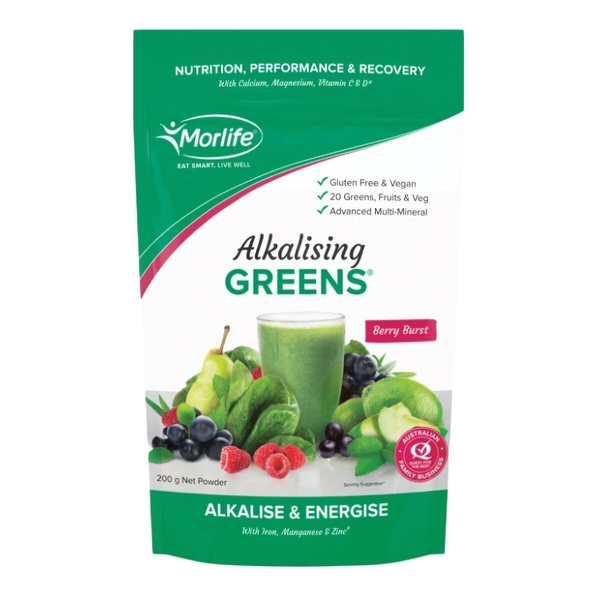
Progesterone
Scientific names: Progesterone, 4-Pregnene-3, 20-Dione
Alternative names: Bioidentical Progesterone, Corpus Luteum Hormone, Hormone de Grossesse, Hormone du Corps Jaune, Hormone Lutéale, Hormone Progestative, Luteal Hormone, Luteohormone, Lutine, Natural Progesterone, NSC-9704, Pregnancy Hormone, Pregnanedione, Prégnanedione, Progestational Hormone, Progesterona, Progestérone, Progesterone USP, Progesteronum
Actions: Benzodiazepine withdrawal, Cardiovascular, Endometrial, Fertility, Hormonal, Neurological, Premenstrual
Background
Progesterone is a hormone that occurs naturally in the body. It's involved in pregnancy and is produced mainly in the ovaries. It can also be made in a lab.
Progesterone levels can affect menstrual periods and menopausal symptoms. All progesterone products are made in a lab. The term "natural progesterone" refers to progesterone made from a chemical called diosgenin, which comes from wild yam or soy. The human body is not able to make progesterone from diosgenin, so eating wild yam or soy will not boost progesterone levels.
People use progesterone supplements and other non-prescription products for infertility, menopausal symptoms, and many other conditions, but there is no good scientific evidence to support any use.
Non-prescription progesterone products may contain more or less progesterone than indicated on the label. These products do not require FDA approval. Discuss the use of prescription progesterone products with a healthcare provider. Also, don't confuse progesterone with pregnenolone or wild yam. These are not the same.
Progesterone levels can affect menstrual periods and menopausal symptoms. All progesterone products are made in a lab. The term "natural progesterone" refers to progesterone made from a chemical called diosgenin, which comes from wild yam or soy. The human body is not able to make progesterone from diosgenin, so eating wild yam or soy will not boost progesterone levels.
People use progesterone supplements and other non-prescription products for infertility, menopausal symptoms, and many other conditions, but there is no good scientific evidence to support any use.
Non-prescription progesterone products may contain more or less progesterone than indicated on the label. These products do not require FDA approval. Discuss the use of prescription progesterone products with a healthcare provider. Also, don't confuse progesterone with pregnenolone or wild yam. These are not the same.
Safety Safety definitions
When taken by mouth: Prescription progesterone products are likely safe when used appropriately under the care of a healthcare provider. There isn't enough reliable information to know if non-prescription progesterone products or supplements are safe. Stay on the safe side and avoid use.
When applied into the vagina: Prescription progesterone products are likely safe when used appropriately under the care of a healthcare provider. There isn't enough reliable information to know if non-prescription progesterone products are safe. Stay on the safe side and avoid use.
Breast-feeding: There isn't enough reliable information to know if progesterone is safe to use when breast-feeding. Stay on the safe side and avoid use.
Arterial disease: Don't use non-prescription forms of progesterone if you have arterial disease.
Breast cancer: Don't use non-prescription forms of progesterone if you have breast cancer or a history of breast cancer.
Depression: Don't use non-prescription forms of progesterone if you have depression.
Liver disease: Progesterone might make liver disease worse. Don't use non-prescription forms of progesterone if you have liver disease.
Porphyria: Progesterone might cause an attack of porphyria. Don't use non-prescription forms of progesterone if you have porphyria.
Vaginal bleeding: If you have undiagnosed vaginal bleeding, don't use non-prescription forms of progesterone.
When applied into the vagina: Prescription progesterone products are likely safe when used appropriately under the care of a healthcare provider. There isn't enough reliable information to know if non-prescription progesterone products are safe. Stay on the safe side and avoid use.
Special Precautions & Warnings:
Pregnancy: Prescription progesterone products are likely safe when applied into the vagina as part of infertility treatment or while pregnant to prevent preterm labor. But progesterone is likely unsafe when used during pregnancy for any other purpose. There isn't enough reliable information to know if non-prescription forms of progesterone are safe to use during pregnancy. Stay on the safe side and avoid use.Breast-feeding: There isn't enough reliable information to know if progesterone is safe to use when breast-feeding. Stay on the safe side and avoid use.
Arterial disease: Don't use non-prescription forms of progesterone if you have arterial disease.
Breast cancer: Don't use non-prescription forms of progesterone if you have breast cancer or a history of breast cancer.
Depression: Don't use non-prescription forms of progesterone if you have depression.
Liver disease: Progesterone might make liver disease worse. Don't use non-prescription forms of progesterone if you have liver disease.
Porphyria: Progesterone might cause an attack of porphyria. Don't use non-prescription forms of progesterone if you have porphyria.
Vaginal bleeding: If you have undiagnosed vaginal bleeding, don't use non-prescription forms of progesterone.
Effectiveness
Effective Effectiveness definitions
There is interest in using non-prescription progesterone for a number of purposes, but there isn't enough reliable information to say whether it might be helpful.
Dosing & administration
There isn't enough reliable information to know what an appropriate dose of non-prescription progesterone products might be. Non-prescription products may contain more or less progesterone than indicated on the label. These products do not require FDA approval.
Some progesterone products are available via prescription. Discuss the use of these products with a healthcare provider.
Some progesterone products are available via prescription. Discuss the use of these products with a healthcare provider.
Interactions with pharmaceuticals
Estrogens
Interaction Rating=Moderate Be cautious with this combination.
Progesterone and estrogen are both hormones. They are often taken together. Progesterone can decrease some of the side effects of estrogen. But progesterone might also decrease the beneficial effects of estrogen. Taking progesterone products along with estrogen might cause breast tenderness.
Paclitaxel (Abraxane, Onxol)
Interaction Rating=Minor Be watchful with this combination.
Injecting high-doses of progesterone by IV together with the drug paclitaxel might increase levels of paclitaxel in the blood. It's not clear if this is a concern with progesterone supplements or other non-prescription progesterone products. IV products can only be given by a healthcare provider.
Interactions with herbs & supplements
There are no known interactions with herbs and supplements.
Interactions with foods
There are no known interactions with foods.
Products
View all productsPer serve:
- Progesterone
- Sepia
- Capsella bursapastoris
- Aquilegia vulgaris
- Erigeron canadensis
- Bushmaster snake
- Onosmodium virg
- Oophorinum
- Viburnum opulus
- Porcine ovarian follicle
- Porcine hypothalamus
- Porcine pituitary gland
- Porcine endometrium
Practitioner product
Per 5 g:
- Prunus persica (fruit) (Peach)
- Natural banana flavour
- Mango (fruit)
- Malus (Apple)
- Fragaria ananassa (Strawberry)
- Oryza sativa (Rice juice concentrate)
- Pea protein concentrate
- Pouteria lucuma (fruit) powder
- Green banana starch
- Oryza sativa (Rice fibre)
- Bambusa arundinacea (stem)
- Beta vulgaris
- Brassica oleracea var. italica (Broccoli)
- Spinacia oleracea (Spinach)
- Brassica oleracea var. acephala (leaf) powder (Kale)
- Pumpkin powder
- Sweet potato powder
- Sunflower seed
- Vaccinium macrocarpon
- Chlorella pyrenoidosa powder
- Grifola frondosa
- Lentinula edodes
RRP: $29.95$25.46Save: 15%
Create account
Per 10 g (Berry Burst):
- Rubus idaeus
- Medicago sativa
- Arthrospira platensis (Spirulina)
- Brassica oleracea var. acephala (leaf) powder (Kale)
- Spinacia oleracea
- Petroselinum crispum
- Fagopyrum esculentum (leaf)
- Chlorella vulgaris powder
- Brassica oleracea var. italica (sprout) powder
- Malus (Apple)
- Ananas comosus (Pineapple)
- Pyrus communis (Pear)
- Citrus limon (Lemon)
- Citrus aurantiifolia (Lime)
- Euterpe oleracea (berry) ext. (Acai)
- Urtica dioica
- Mentha x piperita
- Camellia sinensis
- Apium graveolens
- Cucumis sativus
- Magnesium citrate
- Potassium citrate
- L-glutamine
- Calcium citrate
- Natural flavours
- Taraxacum officinale (leaf) ext. dry
- Eleutherococcus senticosus ext. dry
- Curcuma longa ext. dry
- Withania somnifera ext. dry
- Camellia sinensis ext. dry
- Rosmarinus officinalis ext. dry
- Aloe barbadensis ext. dry
- Gardenia jasminoides ext. dry
- Piper nigrum ext. dry
- Magnesium gluconate
- Apple pectin
- L-alanine
- Xanthan gum
- L-histidine
- Lactobacillus acidophilus
- Bifidobacterium lactis
- Bifidobacterium bifidum
- Bifidobacterium longum
- Potassium ascorbate (Vitamin C)
- Citric acid anhydrous
- Zinc gluconate
- Ferrous fumarate
- Manganese citrate
- Selenomethionine
- Vitamin D
- Chromium picolinate
- Acacia sp. (fibre)
200 g Berry Burst
$47.95
No longer stocked by vital.ly
Create account
vital.ly has licensed monographs from TRC Healthcare.
This monograph was last reviewed on 18/07/2025 10:00:00 and last updated on 01/12/2021 08:51:19. Monographs are reviewed and/or updated multiple times per month and at least once per year.
Natural Medicines disclaims any responsibility related to medical consequences of using any medical product. Effort is made to ensure that the information contained in this monograph is accurate at the time it was published. Consumers and medical professionals who consult this monograph are cautioned that any medical or product related decision is the sole responsibility of the consumer and/or the health care professional. A legal License Agreement sets limitations on downloading, storing, or printing content from this Database. No reproduction of this monograph or any content from this Database is permitted without written permission from the publisher. It is unlawful to download, store, or distribute content from this site.





